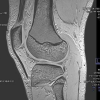Your Examination
Family members are welcome to join you during the ultrasound scan. Please bear in mind that the ultrasound room will only accommodate a small number of people.
Factors that determine the length of the scan are:
- The reason the scan is required
- The age of the fetus
- The number of fetuses
- How much fluid is present around the baby
- The position of the baby in the uterus
- How full the bladder is
- Whether an internal or trans-vaginal scan is required
- The mother's body mass index
- During your pregnancy two to three scans may be requested by your doctor or midwife. This may be to visualise an area not seen adequately on a previous scan, to check your baby’s growth or to see where the placenta is located before delivery of your baby. The scan will take approximately 10-30 minutes and is performed by a trained technician called a Sonographer.
What does an internal or trans-vaginal scan involve?
To get a better view of the baby, a trans-vaginal scan may be necessary. This scan involves a transducer or probe similar in size and shape to a tampon that is inserted into your vagina and connected to the ultrasound machine. This gives us a better view of the fetus as the probe is closer to the uterus. Usually it is not uncomfortable.
Post Examination
When your ultrasound scan is complete, the Radiologist will interpret the images and send a report to your doctor or midwife. A copy of your scan images are available for you if you wish. Please ask at reception.
















